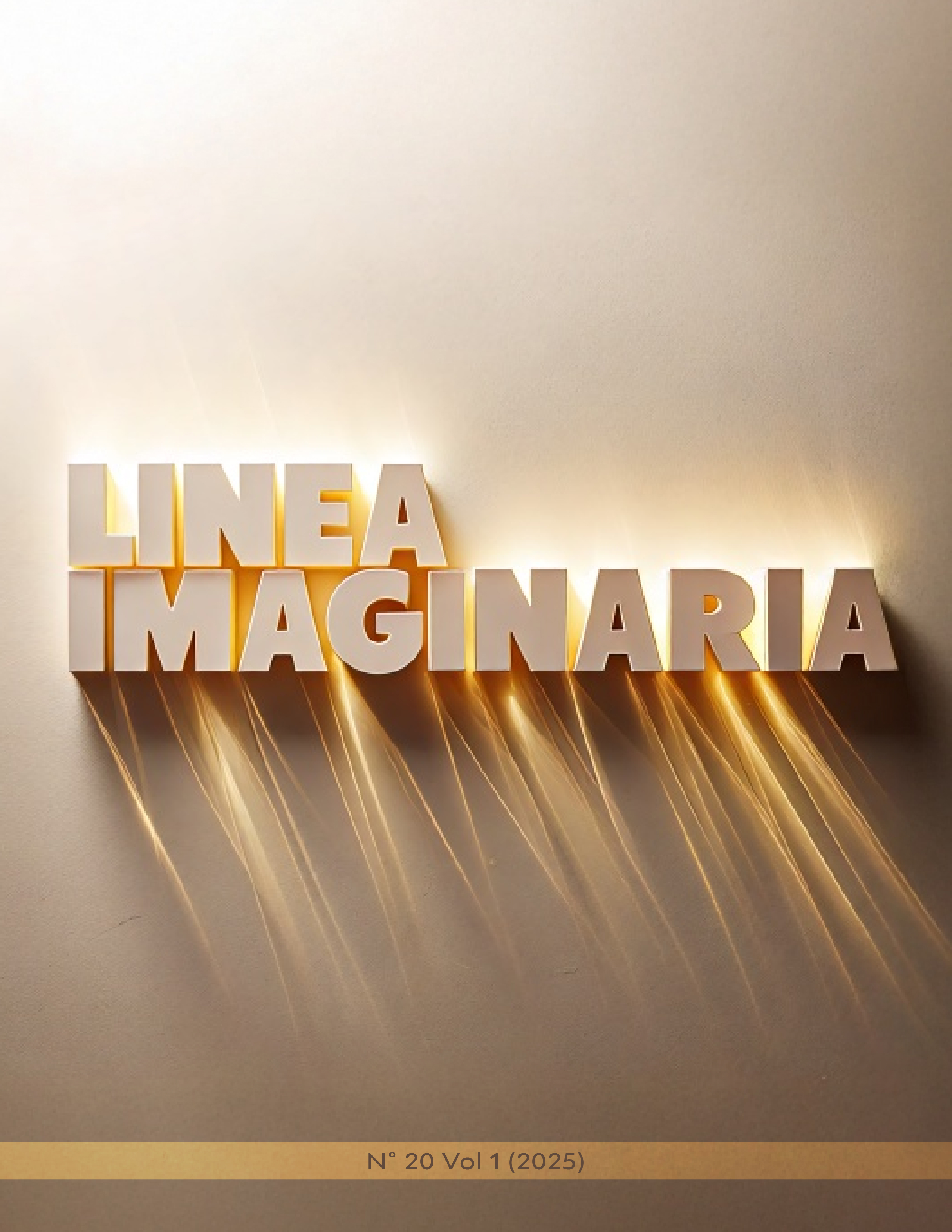PRÁCTICAS DE FORMACIÓN EN EL DESARROLLO SOCIOEMOCIONAL DE LOS NIÑOS Y NIÑAS EN EDUCACIÓN INICIAL EN LA CIUDAD DE CÚCUTA: UNA PERSPECTIVA DESDE LA VALORACIÓN
DOI:
https://doi.org/10.56219/lneaimaginaria.v1i20.3720Palabras clave:
Valoración educativa, desarrollo socioemocional, educación preescolarResumen
La valoración como proceso es un hecho que ha motivado a la revisión constante y continua de una serie de aspectos que permiten identificar el desarrollo emocional, social y cognitivo que tienen los niños en los albores de su existencia. En tal sentido, esta investigación buscó Vislumbrar el modo en que la valoración en las prácticas de formación afecta el desarrollo socioemocional de los niños y las niñas en educación inicial en la ciudad de Cúcuta. Tal realidad es considerada como una situación que amerita ser revisada pues de ella depende el desarrollo emocional de las generaciones futuras. En atención a lo expuesto, la investigación se encuadró en el enfoque cualitativo. Por tal motivo, la investigación tomó como informantes a los docentes de educación preescolar del grado transición, ante ello, se hizo uso de la técnica de entrevista para llevar a cabo la fase de campo de la investigación. De este modo, se derivaron una serie de argumentos teóricos que darán lugar a la formación socioemocional desde los aportes de los procesos de valoración de las capacidades de los niños. Haciendo énfasis en las significaciones que los actores educativos tienen sobre el desarrollo personal como un asunto que se debe atender desde edades tempranas para que expliquen cómo se lleva a cabo la realidad en los espacios cotidianos.
Descargas
Citas
Álvarez, J. (2001). Evaluar para conocer, examinar para excluir. Morata: Madrid. Álvarez, E. (2020). Educación Socioemocional. Controversias y Concurrencias Latinoamericanas, 11(20), 388-408. https://www.redalyc.org/journal/5886/ 588663787023/html/ Barraza Niebles, M. (2023). La Teoría de los Sistemas Ecológicos de Urie Bronfenbrenner como marco para comprender la deserción universitaria: una revisión sistemática de la literatura. Collectivus. Revista de Ciencias Sociales, 10(2), 1-24. https://doi.org/10.15648/Collectivus.vol10num2.2023.3823 Bisquerra Alzina, R. (2003). Educación emocional y competencias básicas para la vida. Revista de Investigación Educativa, 21(1), 7–43. Recuperado a partir de https://revistas.um.es/rie/article/view/99071 Cabanillas Tello, M. N., Rivadeneyra Perez, R., Palacios Alva, C. Y.., & Hernández Fernández, B. (2021). Habilidades Socioemocionales en las Instituciones Educativas. SciComm Report, 1(1), 1–17. https://doi.org/10.32457/scr.v1i1.60 García Cabrero, Benilde, Loredo Enríquez, Javier, & Carranza Peña, Guadalupe. (2008). Análisis de la práctica educativa de los docentes: pensamiento, interacción y reflexión. Revista electrónica de investigación educativa, 10(spe), 1-15. Recuperado en 12 de junio de 2024, de http://www.scielo.org.mx/scielo.php?script=sci_arttext&pid=S1607-40412008000300006&lng=es&tlng=es. García-Ruiz, M.E. y Lena-Acebo, F.J. (2019) “Movimiento FabLab: diseño de investigación mediante métodos mixtos”. OBETS. Revista de Ciencias Sociales, 14(2): 373-406. doi: 10.14198/OBETS2019.14.2.04 DOI: https://doi.org/10.14198/OBETS2019.14.2.04
Guevara, C. Y., Rugerio, J. P., Hermosillo, A. M. y Corona, L. A. (2020). Aprendizaje socioemocional en preescolar: fundamentos, revisión de investigaciones y propuestas. Revista Electrónica de Investigación Educativa, 22, e26, 1-14. https://doi.org/10.24320/redie.2020.22.e26.2897 ICBF. (2015). ESCALA DE VALORACIÓN CUALITATIVA DEL DESARROLLO INFANTIL - REVISADA. https://www.icbf.gov.co/sites/default/files/procesos/ manual_tecnico_escal_de_valoracion_cualitativa.pdf Jiban, C. (2013). EARLY CHILDHOOD ASSESSMENT: IMPLEMENTING EFFECTIVE PRACTICE. In EARLY CHILDHOOD ASSESSMENT: IMPLEMENTING EFFECTIVE PRACTICE (pp. 1-16). Northwest Education Association. https://info.nwea.org/rs/nwea/images/EarlyChildhoodAssessment-ImplementingEffectivePractice.pdf Kerlinger, F. (1979). Enfoque conceptual de la investigación del comportamiento. Distrito Federal, México: Nueva Editorial Interamericana. Ley 115 de 1994, por la cual se expide la ley general de educación. 8 de febrero de 1994. (Colombia). MEN. (2008, marzo). Usar la valoración en el aula para mejorar -. Ministerio de Educación Nacional. Retrieved March 5, 2024, from https://www.mineducacion.gov.co/1621/article-162385.html Meneses, J., & Rodríguez-Gómez, D. (2011). El cuestionario y la entrevista. https://femrecerca.cat/meneses/publication/cuestionario-entrevista/cuestionario-entrevista.pdf Moreno Olivos, Tiburcio. (2018). valoración del aprendizaje y para el aprendizaje. Reinventar la valoración en el aula. Torres, J. (2016). Tendencias pedagógicas en las prácticas de formación de licenciados en Educación Básica modalidad a distancia y virtual. Tunja, Editorial UPTC. Torrico Linares, E., Santín Vilariño, C., Andrés Villas, M., Menéndez Álvarez-Dardet, S., & LópezLópez, M. J. (2002). El modelo ecológico de Bronfrenbrenner como marco teórico de la Psicooncología. Anales de Psicología, 18(1), 45-59. https://www.redalyc.org/pdf/167/16718103.pdf De Zubiría Samper, J. (2006). Los modelos pedagógicos: hacia una pedagogía dialogante. Coop. Editorial Magisterio.
Descargas
Publicado
Cómo citar
Número
Sección
Licencia
Derechos de autor 2025 LÍNEA IMAGINARIA

Esta obra está bajo una licencia internacional Creative Commons Atribución-NoComercial-CompartirIgual 4.0.
La revista Línea Imaginaria conserva los derechos patrimoniales (copyright) de las obras publicadas, que favorece y permite la reutilización de los mismos bajo la licencia Creative Commons Atribución-NoComercial-CompartirIgual 4.0 , por lo cual se pueden copiar, usar, difundir, transmitir y exponer públicamente, siempre que se cite la autoría y fuente original de su publicación (revista, editorial, URL y DOI de la obra), no se usen para fines comerciales u onerosos y se mencione la existencia y especificaciones de esta licencia de uso. Si remezcla, transforma o crea a partir del material, debe distribuir su contribución bajo la misma licencia del original.















